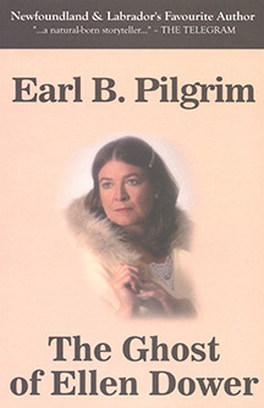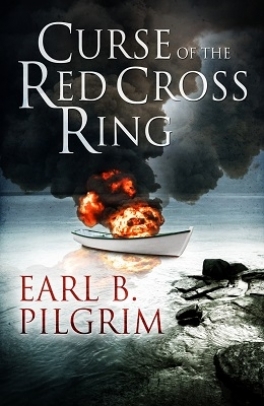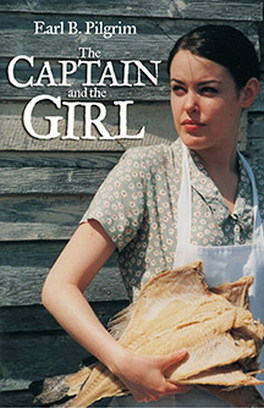Edward Dower, an enterprising fishing captain, in the year 1872 prosecuted the northern cod and seal with a determination that amazed friend and neighbour alike. Ellen Dower, wife to Edward Dower and proprietress of their fishing firm, was a lady of standing in the little town of Conche, Newfoundland. Hers was an unrivalled beauty, and she was a revered and respected advisor to her neighbours in times of trouble. Maurice Power was a man about whom little was known. A tyrant and savage to those few who knew him, the man kept mostly to himself. But he had big plans for Edward and Ellen Dower and the town of Conche...
By the coast of the Great Northern Peninsula, or, more specifically, to the north of Conche about fifteen miles, lies a small offshore point of land called Fishot Island. History says this island was among the first in Newfoundland to be inhabited by European settlers. During the years when pirates roamed the oceans, when ships of such dubious repute needed a place to hide, the mouth of Belvy Bay with its many hideaway coves became a haven to such men of the deep. And for this reason they sometimes called in at Fishot Island, to sound around or see if they could learn of military vessels lying in wait. Paddy O’Neill, who is touted as the historian of Conche, wrote one such tale in his paper The Log of Conche that held particular interest to me.
Many stories have been told about Maurice Power these past hundred years, old Maurice Power from Conche. One says he was a pirate who changed his name a couple of times. It goes that one stormy night a pirate ship bound for Belvy Bay came into Fishot Harbour seeking shelter.
Little is known of what went on aboard the ship and among the crew, except that a man by the name of Maurice de la Pour jumped overboard and swam ashore to escape the future his shipmates had planned for him.
At daylight the brawling cutthroats came ashore and searched the rickety houses on Fishot Island, but no sign of Maurice de la Pour could be found. In a rage, the tyrannical captain ordered all the dwellings burned. The crew managed to convince him after some time that their missing crewmate was not in town, and annoyed at the cries of the women and children, the captain gave up the search and left.
It wasn’t long before Maurice de la Pour crawled out from under a rock and appeared in town. He was soon recognized as the escaped man the pirates were seeking. He asked the people in his French accent if they had any work for him ashore, but they were still shaken after their ordeal with the pirates. They just wanted to be rid of this man who had brought trouble and most likely would again.
Not welcome on Fishot Island, Maurice de la Pour headed south—avoiding the Conche area out of fear of meeting up with his former crewmates—and went on to the small town of Englee. There he secured a job with some French fish merchants as a keeper of their fishing rooms. He stayed there for just two years, before he was transferred to the Northeast Crouse area. Here the old Frenchman changed his name to Maurice Pour, fuelling speculation he was disguising his identity.
A year later he moved again, this time to a place called Silver Cove, within the boundary of Conche Harbour. By now the old Frenchman’s name had evolved into Maurice Power. He was the father of one Maurice Power, Jr., whose name struck fear into the hearts of people back in the 1800s.
While talking to Paddy O’Neill, my source of information for this book, Maurice Power’s lineage came into question. “I heard all about Maurice Power, Jr.’s background from my grandfather, Thomas Casey,” Paddy said. “He was a well-grown man before Maurice Power, Jr. died.”
When I visited Mr. O’Neill for the first time, he met me with a wide grin and said, “I know what you’re here for, Earl. I heard that you’re writing about my relative, Aunt Ellen Dower.”
I greeted this grand old gentleman and shook hands with him. “Yes, I am,” I said, “if I can get the story of what really happened.”
He took out a pipe and said, “Well, you’ve come to the right place. I’m the only person alive now who can tell the true story of what went on between Aunt Ellen and Uncle Edward Dower.”
I could see that his eighty-eight years had not lessened his memory any, and I could tell he was ready to talk. “First,” I said, “I want to tell you what I plan to call it.”
Paddy lit his pipe. “Yes,” he replied, tapping his fingers on the table and giving me a look that said he was expecting a surprise.
“I am going to call it,” I hesitated, “The Ghost of Ellen Dower.”
He fell silent for a moment. “Earl,” he said, “you have to make sure people know it’s the true story of the ghost of Ellen Dower. A lot of people have already written about this, but they didn’t know what they were talking about. I’ll tell you the whole story now, if you have the nerve to write it.”
I lifted my notebook and turned to a fresh page.
“Start talking,” I said.
Pilgrim does a good job at creating the atmosphere of the time and place and putting flesh and blood on what originally were anecdotal characters.-- Fate magazine --
The story, engaging as it is, is only one reason to read this wonderful novel. The politics of the early Newfoundland outport, the religious and folkloric beliefs of its seafaring people, the intricacies of the seal hunt, and the other details invest the story with remarkable realism.-- Canadian Book Review Annual --



















